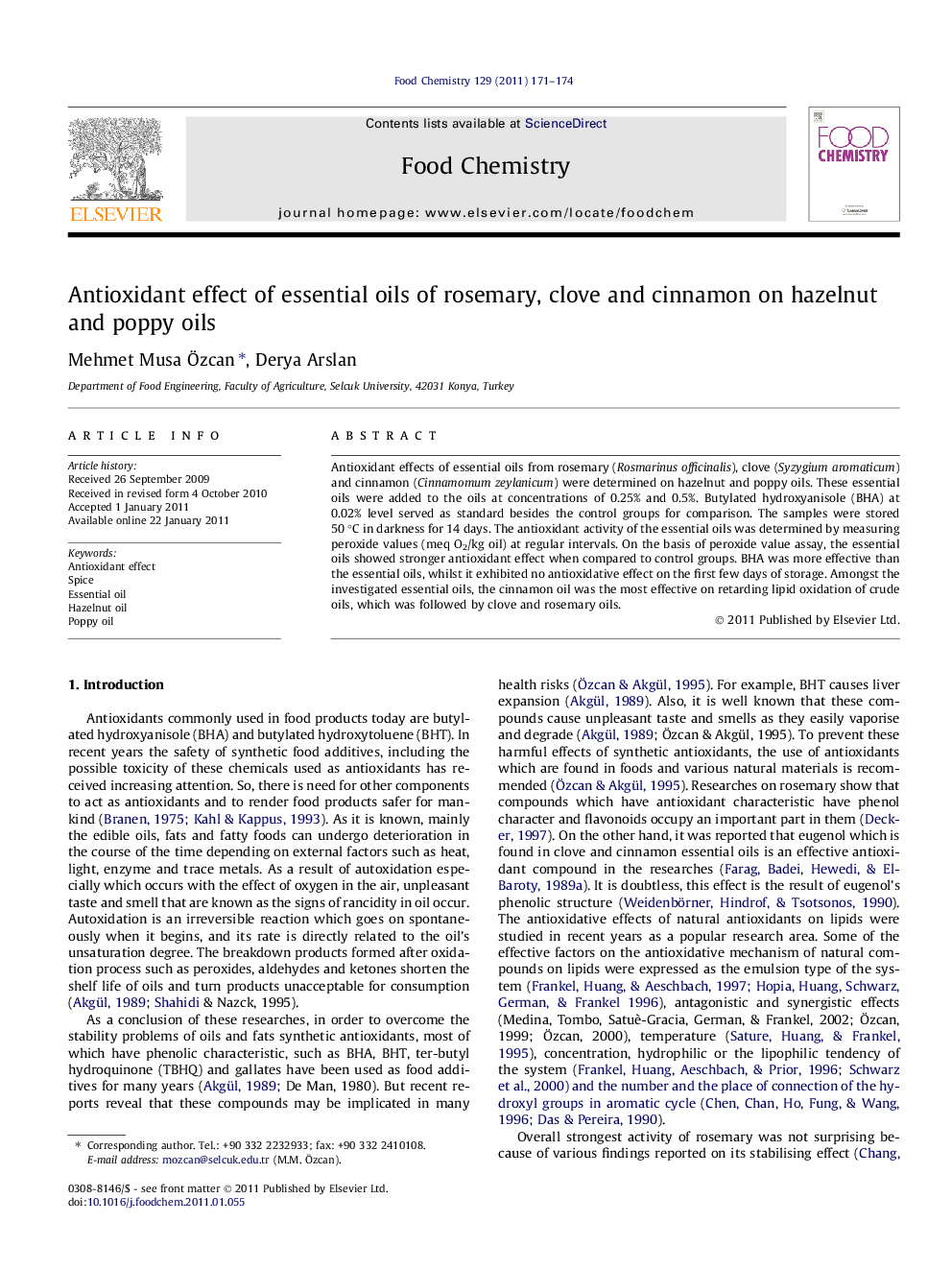| کد مقاله | کد نشریه | سال انتشار | مقاله انگلیسی | نسخه تمام متن |
|---|---|---|---|---|
| 1188507 | 963490 | 2011 | 4 صفحه PDF | دانلود رایگان |

Antioxidant effects of essential oils from rosemary (Rosmarinus officinalis), clove (Syzygium aromaticum) and cinnamon (Cinnamomum zeylanicum) were determined on hazelnut and poppy oils. These essential oils were added to the oils at concentrations of 0.25% and 0.5%. Butylated hydroxyanisole (BHA) at 0.02% level served as standard besides the control groups for comparison. The samples were stored 50 °C in darkness for 14 days. The antioxidant activity of the essential oils was determined by measuring peroxide values (meq O2/kg oil) at regular intervals. On the basis of peroxide value assay, the essential oils showed stronger antioxidant effect when compared to control groups. BHA was more effective than the essential oils, whilst it exhibited no antioxidative effect on the first few days of storage. Amongst the investigated essential oils, the cinnamon oil was the most effective on retarding lipid oxidation of crude oils, which was followed by clove and rosemary oils.
► Cinnamon and clove essential oils have been found to have higher antioxidant activity than rosemary essential oil in poppy and hazelnut oils.
► There is a need to replace synthetic antioxidants with natural components to act as antioxidants in order to render food products safer.
► The search for preparation and isolation of natural antioxidant sources and compounds is highly desirable and would be beneficial for a healthier life.
Journal: Food Chemistry - Volume 129, Issue 1, 1 November 2011, Pages 171–174